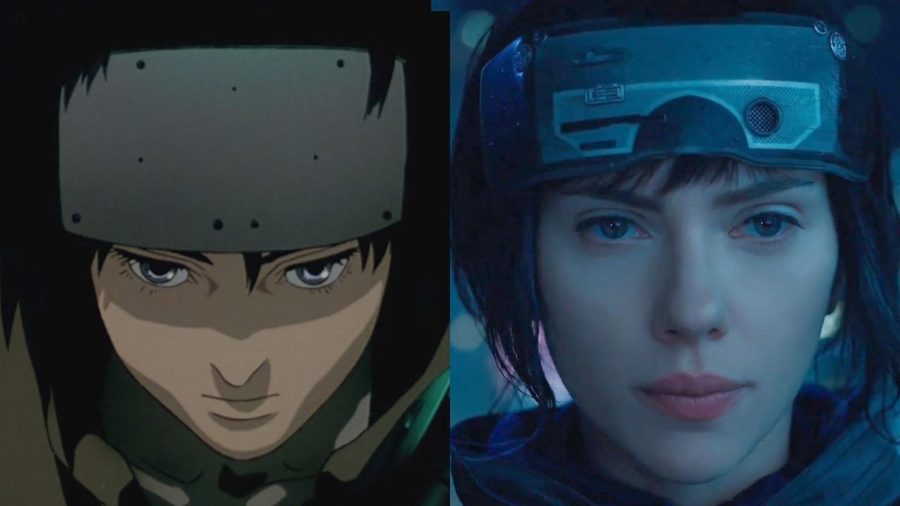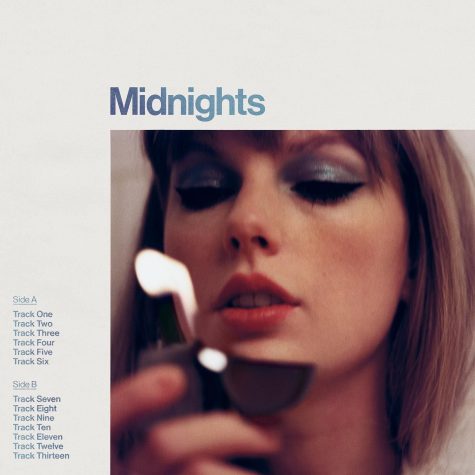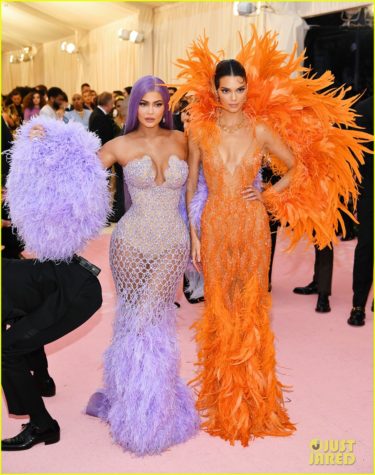The release of “Ghost in the Shell” meets with criticism
Anime-to-live-action movies have historically always had blotched releases and the new Ghost in the Shell movie is no different. Rather than being insultingly terrible however, this movie’s release has been stunted for a different reason: controversy surrounding the cast and accusations of Hollywood whitewashing the movie.
Because of the accusations against the movie, the initial release flopped but was it deserved?
In the new movie the role of Motoko Kusanagi is played by Scarlett Johansson, a very famous Caucasian actor. By having Johansson portray a canonly Japanese character in a Japanese setting from a piece of Japanese literature the movie’s director stirred a lot of controversy. All over the internet people have been accusing the movie of whitewashing but is it really just another case of classic Hollywood taking an Asian role and giving it to a White actor or is there more to it than that?
Ghost in the Shell (or GitS for short) is a live-action, movie adaptation of the 1995 animated movie Ghost in the Shell, which was based off of the manga of the same name. The original GitS follows the story of a cybernetically augmented police officer Motoko Kusanagi who leads an assault team for Public Security Section 9 in the fictional Cyberpunk city of “New Port City”, Japan as she and her team attempt to find a dangerous and elusive hacker known as the Puppet Master.
In the source material (the manga) the only character who is of Caucasian descent canonly is Batou, a secondary character in the show. However, in the anime as a whole most of the characters are white. This is not because the characters are white but rather because the anime art style as a whole traditionally looks European.
While this is a much debated topic many people believe that it is because to Japanese people the non-black hair and round eyes are just part of the art style rather than an explicit and purposeful drawing of European features.
When I asked an undisclosed NHS student for their opinion on the matter they said they didn’t “understand ‘whitewashing’. If an American movie had been remade in Korea with an all Korean cast it would just be a Korean remake,” they went on to say.
While that’s a very valid and fair opinion, I think that the context of the movie being remade and how much ethnicity and location plays into the story.
When asked about the casting controversy during an interview with Buzzfeed the producer for the 2017 movie, Steven Paul, said “I don’t think it was just a Japanese story. Ghost in the Shell was a very international story, and it wasn’t just focused on Japanese; it was supposed to be an entire world. That’s why I say the international approach is, I think, the right approach to it.”
In addition to this, he seems to have the blessing of Mamoru Oshii, the director of the original Ghost in the Shell anime, who came to visit the set during filming.
Despite this however the original creator of the Ghost in the Shell series has yet to give an opinion.
Steven Paul’s comment about Ghost in the Shell being an “international story” brings up another big talking point: plot divergence.
As expected the new Ghost in the Shell diverges from the story of the original but what is frustrating for a lot of fans is that the narrative of the new movie departs so far from the original that it misses the original point of the movie.
In the original anime and manga, Motoko knows who she is and how she became a cyborg. The story focuses on her struggle to deal with her core identity; i.e. her body is machine but the mind and soul inside are human. By having the new movie center around Motoko finding out who she is, the main narrative and central theme of the series is being completely ignored.
This deviation from the original narrative shows less evidence of a purposeful erasure of Asian roles in American cinema and more evidence of director apathy.
As one anonymous Tumblr user put it, “Whitewashing is a symptom of a director not giving a [exploitative] about the source material. It’s not the reason for a failure, but if a director can’t be bothered to follow how a character looks (and I believe that not finding a PoC actor capable of ‘pulling the roll off’ is [exploitative]), there’s a very good chance they really don’t care about putting their full effort into making a good movie.”
In accordance with all that has been going on involving the new Ghost in the Shell Japanese YouTuber “That Japanese Man Yuta” posted a video in which he interviewed various Japanese citizens about their opinions on Hollywood whitewashing on the streets of Tokyo. Yuta’s survey shows that six out of the seven Japanese people interviewed don’t actually mind having Scarlett Johansson and two out of the seven actually prefered it.
So with that final thought in mind is it possible that we as a society have blown the issue out of proportion and gotten angry in the place of others? Or is it justified to be frustrated with what may be cultural erasure?

I am a Senior in Journalism I who enjoys Journalism and hopes to pursue a career in it.








